Beauty News, Evolve Beauty
Understanding hyperpigmentation
Hyperpigmentation is a common skin condition that many of our customers face, but with the right information and treatment options, you can significantly improve your skin’s appearance. At Dutch Health Store, we’re dedicated to helping you understand the causes and solutions for hyperpigmentation so you can make informed decisions for your skincare routine.
What Is Hyperpigmentation?
Hyperpigmentation occurs when small areas of the skin darken more than the surrounding skin due to an overproduction of melanin—the pigment that determines your skin color. This results in patches that may range in color from light brown to nearly black. These uneven patches can appear on the face, hands, or any other areas frequently exposed to sunlight, and they can impact your overall confidence and complexion.
The Three Types of Hyperpigmentation
Hyperpigmentation can typically be categorized into three main types. Each type has its own triggers and characteristics:
-
Melasma:
Triggered primarily by hormonal changes, melasma is characterized by large, dark patches that often develop on the face. It is most noticeable during hormonal events, such as pregnancy or when using birth control, which is why it’s sometimes called the “mask of pregnancy.” -
Post-Inflammatory Hyperpigmentation (PIH):
PIH occurs following skin injuries or conditions such as acne or eczema. As the skin heals, excess melanin can leave behind dark spots that remain long after the initial inflammation has subsided. -
Sunspots:
Also known as solar lentigines or age spots, these occur due to prolonged exposure to ultraviolet (UV) radiation from the sun. Commonly seen on the face, hands, and arms, sunspots develop as a natural defense mechanism against UV exposure.

What Causes Hyperpigmentation?
A clear understanding of what causes hyperpigmentation is important for both treatment and prevention. The primary factors include:
-
UV Radiation:
Sun exposure is the leading cause. When your skin is exposed to UV rays, it produces extra melanin to protect itself, which can inadvertently lead to dark spots. -
Hormonal Changes:
Significant hormonal shifts—such as those during pregnancy or with hormonal contraceptive use—can trigger melasma. -
Inflammation:
Skin injuries or inflammatory conditions can leave behind lingering dark spots even after the skin heals.
Can Hyperpigmentation Be Reduced?
The encouraging news is that many forms of hyperpigmentation can be minimized or even eliminated with the right treatments. The best results are achieved when the treatment is tailored to your skin type and the specific type of pigmentation.
Topical Treatments
Many customers begin with topical creams and serums, which are applied directly to the skin. Ingredients that have shown effectiveness include:
-
Resveratrol & Niacinamide:
These antioxidants help reduce melanin production and even out skin tone. At Dutch Health Store, we offer products that combine these ingredients in advanced formulas designed to deeply penetrate the skin and target dark spots effectively. -
Retinol and Bio-Retinol:
These ingredients encourage a rapid turnover of skin cells, allowing your skin to shed older, pigmented layers and reveal fresher, more even skin beneath. -
Alpha Hydroxy Acids (AHAs) and Enzymes:
As gentle exfoliants, AHAs and natural enzymes help to slough off dead skin cells, further promoting the reduction of pigmentation and revealing a more radiant complexion. -
Vitamin C:
Known for its brightening properties, Vitamin C neutralizes free radicals that can cause skin dullness and uneven tone while inhibiting melanin formation.
Cosmetic Procedures
For more stubborn pigmentation, cosmetic procedures such as chemical peels, laser treatments, and microdermabrasion can be highly effective. These options work by removing the outer layer of skin or directly targeting excess melanin. We always recommend discussing these treatments with a licensed dermatologist or skincare professional to ensure the safest and most effective approach.
How Long Does It Take to See Results?
When addressing hyperpigmentation, timelines can vary based on both the treatment chosen and the severity of the condition:
-
With Topical Treatments:
Typically, improvements become noticeable within 4 to 12 weeks with regular use. However, a consistent routine is key, and significant improvements may take several months. -
With Cosmetic Procedures:
Noticeable results may occur faster, often within just a few sessions. Still, keep in mind that skin healing is a gradual process, and maintaining protection from the sun remains essential for long-term results.
A Recommended Skincare Routine from Dutch Health Store
At Dutch Health Store, we advocate for a balanced and consistent skincare routine that addresses both treatment and prevention:
-
Cleanse:
Start with a gentle cleanser that removes impurities without stripping your skin’s natural moisture. Look for formulas enriched with enzymes and Vitamin C to brighten and refresh your skin. -
Tone:
Use a toner with gentle exfoliating properties, such as one containing glycolic acid. This helps remove dead skin cells and primes your skin for better absorption of active ingredients. Daily defence moisture mist is also a good option to try! -
Treat:
Apply a targeted serum that includes potent ingredients like Resveratrol, Niacinamide, Retinol, or Vitamin C. These serums are pivotal in reducing dark spots and evening out your skin tone. -
Moisturize:
A good moisturizer locks in hydration and supports the skin’s regeneration process. Choose a night cream that promotes skin renewal while you sleep, and opt for a daytime moisturizer with SPF. -
Protect:
Never skip sunscreen. A broad-spectrum SPF of 30 or higher is essential to protect your skin from further UV damage, which is crucial in preventing the reoccurrence of hyperpigmentation. -
Exfoliate Weekly:
Using a mask or exfoliating treatment once a week can dramatically improve skin brightness by removing the build-up of dead skin cells and stimulating cell turnover.
Final Thoughts
Hyperpigmentation can be a challenging concern, but with the right information and carefully selected products, managing your skin becomes more approachable. At Dutch Health Store, we aim to provide effective, natural solutions that help support a brighter, more even complexion while promoting overall skin health. Along with using quality skincare products, remember to adopt preventative measures—such as daily sunscreen use and a gentle skincare routine—to keep your skin glowing and balanced.
By gaining a better understanding of hyperpigmentation, its causes, and available treatment options, you are now better equipped to address these concerns in your skincare journey. We’re here to support you every step of the way, offering products and advice tailored to your skin’s unique needs.
For more tips and product recommendations.. stay tuned to Dutch Health Store—your partner in achieving healthier, more radiant skin.


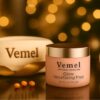

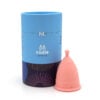

















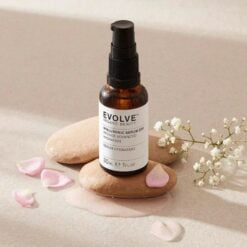
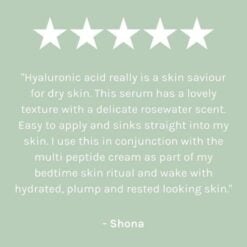






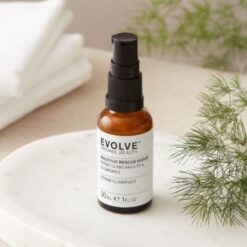
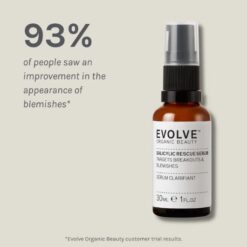











 Beauty Products
Beauty Products By Skintype
By Skintype Brands A-Z
Brands A-Z Wellness
Wellness Health / Nutrition
Health / Nutrition